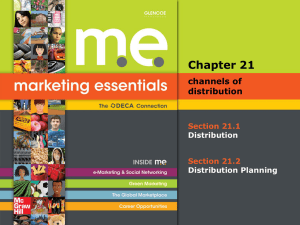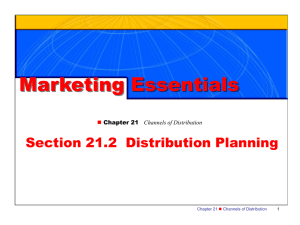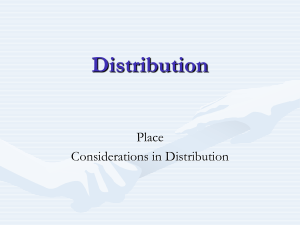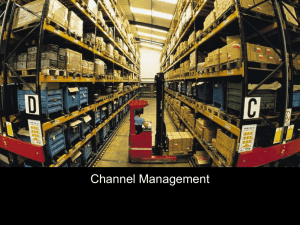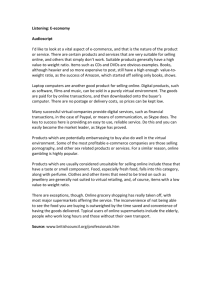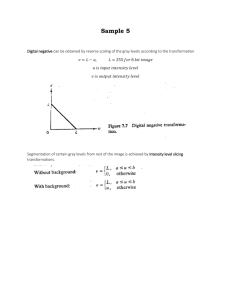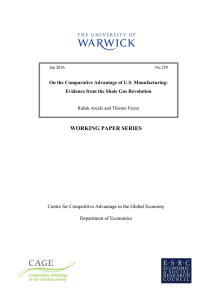Distribution Planning - rooseveltbusinessweeks
advertisement
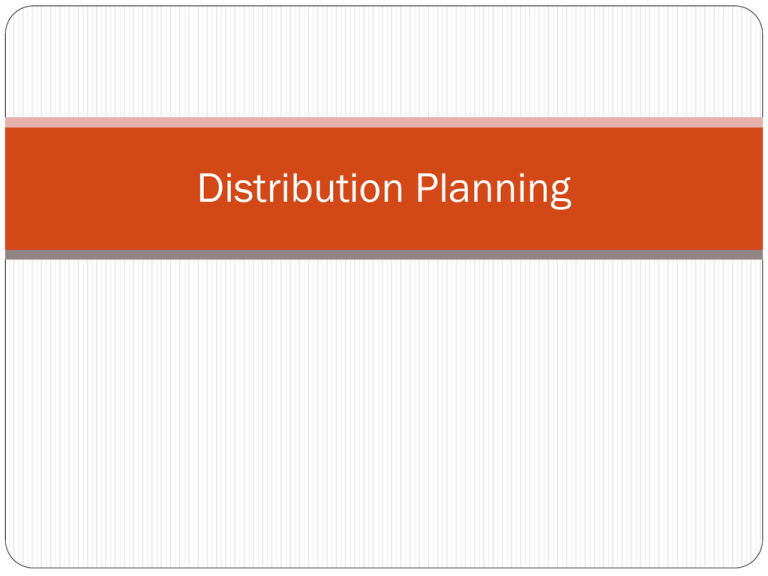
Distribution Planning Vocabulary to Know Exclusive Distribution Integrated Distribution Selective Distribution Intensive Distribution E-marketplace Distribution Planning Distribution planning involves decisions about a product's physical movement and transfer of ownership from producer to consumer. Business Decisions to Consider: The use of multiple channels Control vs. Costs Intensity of distribution desired Involvement in e-commerce Multiple Channels Multiple channels are used when a Company’s product fits both industrial and customer needs. Example: Bottled water is sold to supermarkets and airlines. Retailers also use multiple channels. Example: A office supply store sells to the public and sells office supplies to businesses. Control vs. Costs All manufacturers and producers must determine whether they want more control over the distribution of their products or to decrease costs and gain profitability. Decisions can involve: Using an in-house sales force or independent sales agents Accommodating the dominant member in a particular channel of distribution. Dominant Members Distribution Intensity Distribution intensity is how widely a product will be distributed. There are three levels of distribution intensity: Exclusive Selective Intensive Exclusive Distribution Involves protected territories for distribution of a product in a geographic area. Examples: Fast Food Restaurants/Franchises A variation is Integrated Distribution, in which a manufacturer acts as wholesaler and retailer for its own products. Sherwin-Williams (Paint Supplier) Selective Distribution Means that a limited number of outlets in a given geographic area are used to sell the product. This decision is made to support the brand, its image, cost of goods, and many others. Example: Intensive Distribution Is the use of ALL suitable outlets for a product. The objective is complete market coverage, and the ultimate goal is to sell to as many customers as possible. Example: Gatorade is sold in supermarkets, gas stations, retail stores, hardware stores, warehouse clubs, and many others. E-Commerce Is the means by which products are sold to customers and industrial buyers through use of the Internet. It has created a new Channel of Distribution for consumers and businesses.
